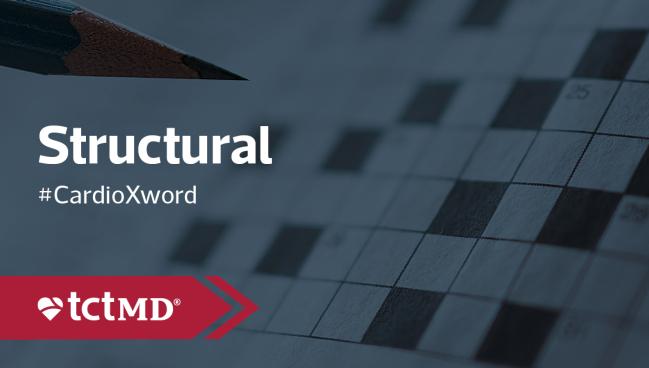Top Structural Heart News of 2024
The year saw much-anticipated data on the value of early TAVI vs surveillance, plus two new tricuspid device approvals.

It was a big news year for structural heart disease. For tricuspid regurgitation, two devices were approved in quick succession by the US Food and Drug Administration, then later in 2024, long-awaited data broke new ground for the early treatment of severe aortic stenosis.
In February, the Evoque tricuspid valve replacement system (Edwards Lifesciences) became the first transcatheter tricuspid device approved in the US based on data from the TRISCEND II trial. One-year data from that trial provided an insight into additional benefits of transcatheter tricuspid valve replacement, with substantial changes seen in the Kansas City Cardiomyopathy Questionnaire overall score (QOL; 5 Down).
Two months after that approval, the FDA gave the nod to TriClip (Abbott) for transcatheter edge-to-edge repair in patients with tricuspid regurgitation who are not candidates for surgery. That approval was based on data from the TRILUMINATE trial, in which TriClip patients had a more favorable primary composite outcome (all-cause death or tricuspid valve surgery, hospitalization for heart failure, and improvement in quality of life) at 1 year than patients on medical therapy alone.
The SMART trial (SMART; 19 Across) kicked up some controversy when it found, in a primarily female cohort, that TAVI with a self-expanding supra-annular valve resulted in clinical outcomes at 1 year similar to those of a balloon-expandable valve, but led to lower rates of bioprosthetic dysfunction in patients with a small aortic annulus.
Additional controversy came with the presentation of a registry analysis at the American Association for Thoracic Surgery 2024 meeting showing that more than half of patients under age 65 with severe aortic stenosis treated in 2021 received transcatheter aortic valve interventions (TAVI; 6 Down) instead of guideline-recommended SAVR. The study was at least the third this year to hint at a trend toward potential overuse of TAVI in younger patients.
Perhaps one of the most anticipated trials of the year came at TCT 2024 when EARLY TAVR (EARLYTAVR; 4 Down) showed a lower rate of the primary endpoint of death, stroke, or unplanned CV hospitalization in asymptomatic patients with severe aortic stenosis who were randomized to receive early TAVI versus clinical surveillance. The difference at a median follow-up of 3.8 years was driven by unplanned hospitalizations, which occurred in 41.7% of the surveillance patients compared with 20.9% of those in the early TAVI group.
Less impressive was the ACURATE investigational device exemption trial (ACURATE; 26 Across), which found that the Acurate neo2 TAVI valve (Boston Scientific) fell short of noninferiority versus Evolut (Medtronic) and Sapien (Edwards Lifesciences) in symptomatic patients with severe aortic stenosis across the spectrum of operative risk. The study calls into questions whether the valve, which is already available in Europe and elsewhere, will be able to attain FDA approval.
Looking Ahead
Speaking with TCTMD, Gilbert Tang, MD (Mount Sinai Health, New York, NY), noted that the Evoque and TriClip approvals can be expected to continue to provoke discussion well into the new year, particularly around how heart teams choose one over the other, as well as how health systems see the choice of these devices from a financial and reimbursement perspective.
In industry news, Edwards acquired JenaValve and has said they anticipate FDA approval of the investigational JenaValve Trilogy system in 2025, which would make it the first approval of a transcatheter therapy for severe symptomatic aortic regurgitation, which currently only has a surgical option.
Tang also pointed to data from the Society of Thoracic Surgeons Adult Cardiac Surgery Database that were presented earlier this year and showed that post-TAVI cardiac surgeries for failed procedures are on the rise, with an estimated fourfold increase seen between 2017 and 2023.
“We’re seeing large numbers of TAVR explants, and also redo TAVR is increasing in terms of the numbers, according to the TVT Registry,” he said. “I think that's going to be something that we need to keep an eye on in terms of outcomes in the coming years. This is especially important in light of considerations for earlier TAVR.”
Finally, Tang noted that the British Heart Foundation stopped enrollment of the PROTECT-TAVI study in October. The trial was randomizing patients to TAVI plus cerebral embolic protection with the Sentinel system (Boston Scientific) or TAVI alone. In a letter, the trial’s steering committee said an interim analysis determined that there was little prospect of demonstrating a benefit in the primary endpoint, adding that it also could not rule out potential for harm.
“What that suggests is that cerebral embolic protection, at least with that device, is likely not going to be a viable adjunct even though some patients ask for it,” Tang said. Evidence of the device’s efficacy has been hard to come by, with the PROTECTED TAVR, which missed its primary endpoint, recently showing some unexplained geographic differences in outcomes.
L.A. McKeown is a Senior Medical Journalist for TCTMD, the Section Editor of CV Team Forum, and Senior Medical…
Read Full BioDisclosures
- Tang reports speaking honoraria from Medtronic, Abbott, and Siemens Healthineers; consulting for Medtronic, Abbott, Shockwave Medical, NeoChord, Peija Medical, and Shenqi Medical Technology; and serving on an advisory board for Medtronic, Abbott, Boston Scientific, and JenaVave.





Comments